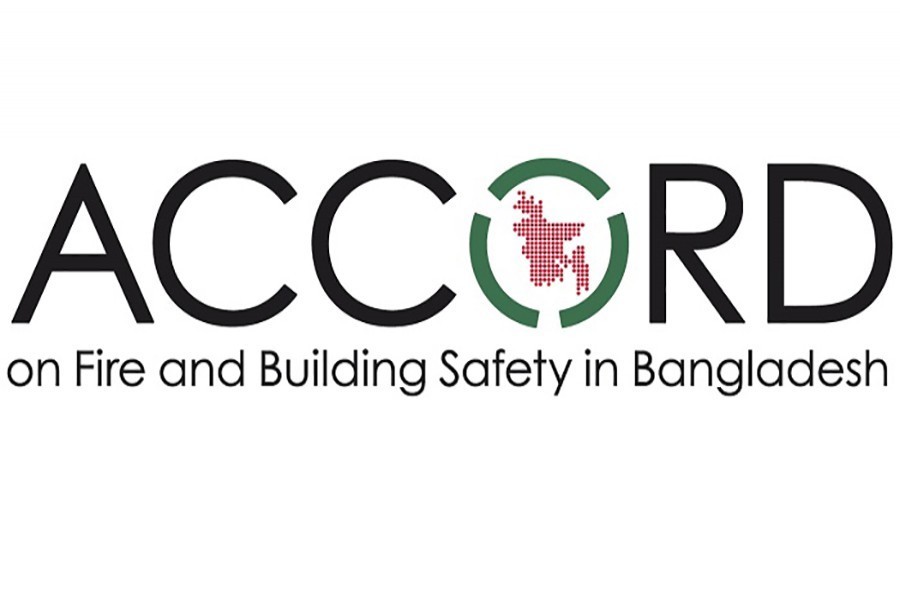
Published :
Updated :

At least 147 global brands and retailers have so far joined the International Accord to ensure health and safety in the global garment and textile industry.
The signatories included many of the 200 EU-based brands that previously joined the Accord on Fire and Building Safety in Bangladesh ready-made garment (RMG) industry, a platform set up immediately after the Rana Plaza building collapse in 2013.
After expiry of the Accord in Bangladesh, the Ready-made Garment Sustainability Council (RSC) was formed in June 2020 that took over the charge of the Accord's works in the country.
On September 1 this year, some 77 global garment brands, retailers and trade unions -- Industriall Global Union and UNI Global Union -- officially announced the International Accord for Health and Safety in the Garment and Textile Industry, a 26-month-long legally-binding agreement to make RMG factories safe.
According to the new agreement, the signatories will continue the health and safety programme in Bangladesh through the RSC by recognising its independence, and share a common vision for growth of the RSC to become a sector-wide programme in Bangladesh.
"Some 147 brands and retailers covering 1,300 factories have now signed the new International Safety Accord," Scott Nova, executive director of the Worker Rights Consortium (WRC), noted in a recent email communication.
The renowned brands that signed the latest agreement included H&M, Benetton, Best Seller, C&A, Inditex, Marks & Spencer, Mango, Matalan, Next, PUMA, PVH and Primark, according to the publicly available list.
"We will continue to work with our allies in Bangladesh and globally to encourage more companies to sign on, and to support expansion of the programme to other high-risk countries beyond Bangladesh," Mr Nova said.
The WRC worked with the other Accord witness signatories to develop a timeline of multiple fatality safety incidents to underscore the need for expansion - mostly in Pakistan, India, Morocco and Egypt, he added.
When asked, Bangladesh Knitwear Manufacturers and Exporters Association (BKMEA) Executive Director Mohammad Hatem said Bangladesh's RMG industry is the role model for safety, and they welcome the Accord's activities in other manufacturing countries to create a level-playing field.
Local exporters invested millions of dollars and made significant improvement in workplace safety in line with the recommendations of the Accord and the Alliance, he noted.
"After the expiry of the Accord and the Alliance, there is no scope for any foreign entity to monitor the safety activities in the country's RMG sector. The RSC has been set up as an independent body to oversee safety in the industry," he added.
Talking to the FE, Bangladesh Garment Manufacturers and Exporters Association (BGMEA) President Faruque Hassan also claimed that they had nothing with the International Accord, and only the RSC would look into all the relevant issues of the sector.
Six representatives from brands, manufacturers and unions each constitute the RSC board, he noted.
Sommilito Garments Sramik Federation President Nazma Akter said majority of the International Accord signatories were the signatories of the Accord, and hoped that more brands would join the initiative.
She called on local trade-bodies and global brands, which are yet to sign, to be signatories of the new platform.
Bangladesh is now receiving more work orders, while more orders would come in the coming months due to various global factors, including the issues in Myanmar, Ms Nazma Akter mentioned.
All should work jointly, welcoming the new International Accord for branding the local RMG sector, where workers are also important partners.
Improved workers' right situation would also help branding the sector positively, she opined.
Munni_fe@yahoo.com


 For all latest news, follow The Financial Express Google News channel.
For all latest news, follow The Financial Express Google News channel.